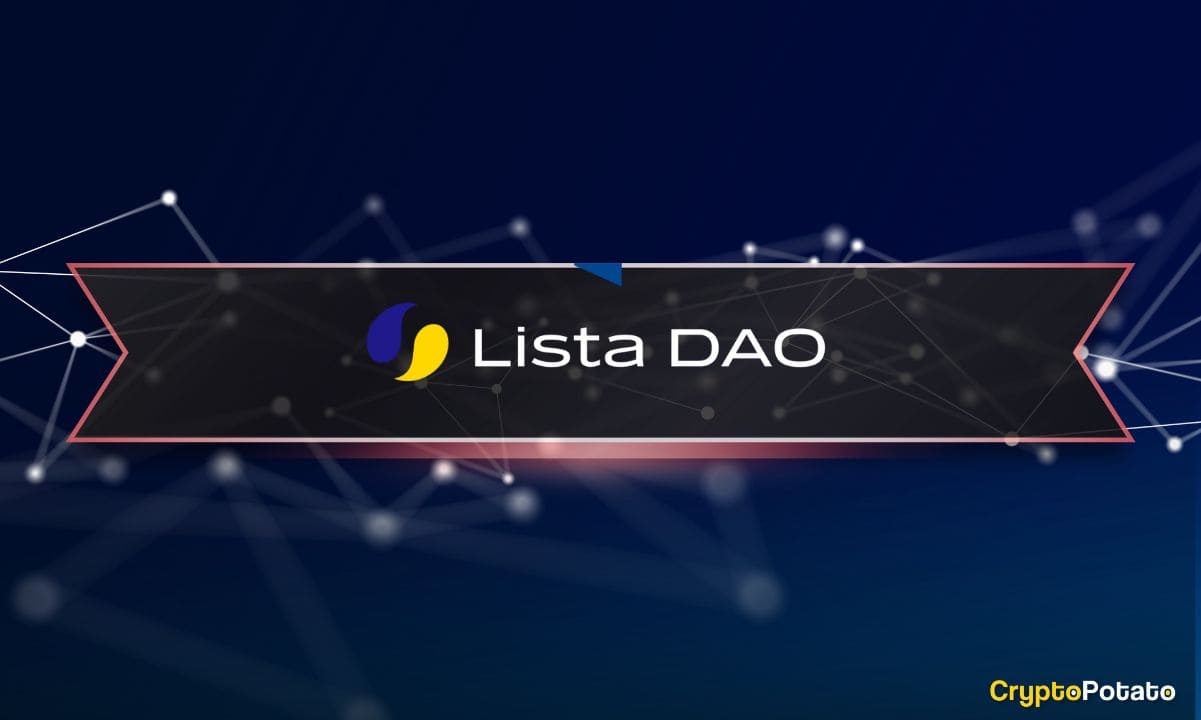ARTICLE AD BOX
Liquid staking and, by extension – liquid restaking – have been some of the most interesting and fast-growing narratives in the past year.
Lista DAO is introducing an open-source liquidity protocol that’s designed to earn yield on collateralized cryptocurrencies such as BNB, ETH, certain stablecoins, and other assets, while also enabling the borrowing of the protocol’s decentralized stablecoin called lisUSD.
The team also coined the term “destablecoin,” which is used to describe the decentralized nature of lisUSD.
With that in mind, let’s dive deeper into Lista and its intricacies.
What is Lista DAO?
Lista DAO (decentralized autonomous organization) brings forward a liquidity protocol for earning yields on multiple cryptocurrencies, as mentioned above.
It is made of a dual token model, where the two native cryptocurrencies are lisUSD (destablecoin) and LISTA. It also has a set of mechanisms that are engineered to support features such as instant conversions, borrowing, yield farming, asset collateralization, and more.
The team behind Lista consists of experienced smart contract developers, according to the main website, who aim to position lisUSD as one of the most widely-used decentralized stablecoins by leveraging Proof-of-Stake and yield-bearing assets.
About LisUSD, the Destablecoin
Destablecoin is a term used to describe a relatively new asset type in the industry. The “de” prefix stands for “decentralized.”
These destablecoins take advantage of decentralized crypto assets that have been staked through a liquid-staking protocol as collateral and do not aim to achieve absolute stability in terms of price with fiat currencies like the USD.
In that sense, they are not fully volatile but definitely carry more volatility relative to absolute stablecoins.
It’s also true that destablecoins are different than all the different types of stablecoins out there.
- They are entirely decentralized. lisUSD, for instance, will be using decentralized assets as collateral, unlike DAI, for example, which leverages USDC.
- Destablecoins also leverage assets staked on liquid-staking platforms.
- As mentioned above, destablecoins don’t aim to achieve absolute price parity with the USD or other fiat-based currencies.
Lista DAO and its Features
Lista DAO is designed to provide users with the abilities to:
- Participate in the governance of the protocol through LISTA tokens
- Claim rewards for borrowing lisUSD in LISTA
- Farm lisUSD
- Borrow lisUSD
- Collateralize BNB
The intent behind the protocol is to deliver a solution for a problem that hs been experienced for a long time by some users – that of overcollateralized stablecoins for users who try to leverage their funds with a collateral dept position (CDP).
Lista uses a combination of features such as the functionality of the MakreDAO model, liquid staking, as well as more liquidity from liquidity providers (LPs) on decentralized exchanges to avoid issues such as frozen funds.
The Tokenomics of Lista DAO
As mentioned above, there’s a dual token model in place where lisUSD is the active destablecoin of the protocol, while the LISTA token is its native cryptocurrency.
The purpose of LISTA is to:
… provide a convenient and secure mode of payment and settlement between participants who interact within the ecosyste on Lista DAO without any intermediaries such as centralized third party entity/institution/credit.
It’s a BEP-20 and ERC-20 compatible token. It shall also be used to promote decentralized governance, where holders can propose and vote on proposals to determine upcoming upgrades, features, and parameters of the protocol.
The total supply will be 1,000,000,000. The token distribution looks like this:
 Source: Lista
Source: ListaThe tokens will be allocated per the following timetable:
 Source: Binance
Source: BinanceHow to Participate in the Binance Megadrop
Lista will be the second project that Binance is launching through the so-called Binance Megadrop platform.
10% of the LISTA supply will be allocated and reserved for users who participate in the campaign.
The program aims to provide users with very early-stage access to some Web3 projects before they get listed on major exchanges.
In the following, you can find a step-by-step guide on how to participate.
First, you will need a Binance account.
You can register one using this link and also earn a $600 welcome bonus as an exclusive deal for CryptoPotato readers!
Once you have this done, you need to navigate to the Megadrop section and lock your BNB to earn scores. This is also where you can subscribe your BNB and lock it for a certain period of time. This will earn you a score.
The longer the subscription period is, the higher the multiplier will be too.
The next thing that you should do is Web3 quests. You will need the Binance Web3 wallet. You can creat yours from the Binance mobile app. Just navigate to your wallets tab at the bottom and then tap on the Web3 button at the top as shown below:
From here, simply follow the instructions, which will lead you to generating your Web3 wallet. Once you have that ready, navigate back to the Megadrop section and simply hit the start Quest at the bottom and you will have to stake some with Lista.
The total score you receive will always be a combination of your locked BNB score, your quest multiplier, and your Web3 quest bonus. here’s the formula:
Total Score = (Locked BNB Score * Web3 Quest Multiplier) + Web3 Quest Bonus.
If you choose not to do quests and simply stake BNB, you will get a multiplier of 1.
This post has been powered by Lista DAO.
The post A New Liquid Restaking Paradigm: Lista DAO (Everything You Need to Know) appeared first on CryptoPotato.
.png)
 6 months ago
6
6 months ago
6











 English (US)
English (US)